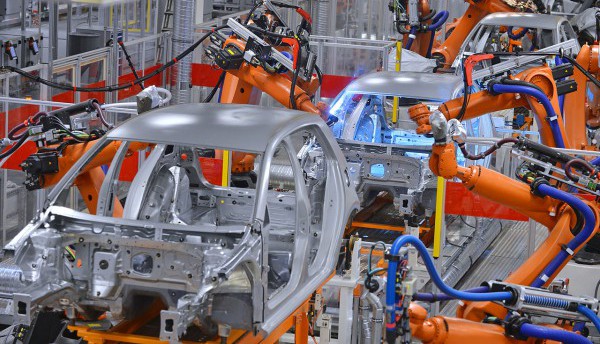
On Dec. 17, Nikkei news agency reported that Japanese automakers Nissan Motor Corp. and Honda Motor Co. are holding talks for a potential merger to effectively compete with their larger global competitors amid ongoing transition to zero-emission vehicles.
The Nikkei report, which suggests that the two companies are evaluating the possibility of joint operations under a holding company, comes nine months after Nissan and Honda signed an agreement to begin the feasibility study of a strategic partnership with a focus on vehicle electrification technologies and automotive software platforms.
In a joint press note released by the two carmakers in March, Nissan’s president and CEO Makoto Uchida said that it is significant that the two companies have reached an agreement based on a mutual understanding that Honda and Nissan face common challenges.
Four months later, the two companies announced that they have agreed to carry out joint research in fundamental technologies around software-defined vehicles (SDV). The move to deepen this strategic partnership entailed joint efforts on the next-generation SDV platform, sharing battery cell specifications and complex material supply chains, e-axle motors and inverters, and energy services including charging infrastructure, among other areas.
In August, the two companies had jointly announced the extended contours of their strategic partnership, which included completing basic research work on the next-generation SDV platform in approximately one year and moving towards planning stages for the mass production thereafter.
Meanwhile, on batteries, the two companies look at pooling their battery technologies and assets to enable a wide range of battery options and reduce costs through investment diversification and risk-hedging, while reaping the benefits of economies of scale.
Nissan and Honda are also evaluating a potential supply arrangement of lithium-ion batteries for EVs manufactured by L-H Battery Co. Inc., a joint venture between Honda and LG Energy Solution (LGES), to Nissan in North America after 2028.
It is to be noted that both the companies are developing solid-state batteries in-house. While Nissan demonstrated its under construction solid-state battery pilot line earlier in April, Honda unveiled its own pilot production line for all-solid-state batteries in November. In its press note, Honda had said that the company is conducting technical verification to establish a mass production process for solid-state batteries while determining the basic specifications of the battery cells.
Even as Honda is working to better the cost competitiveness of manufacturing solid-state batteries – the key roadblock holding back the commercialization of this technology – by adopting a highly efficient production process, a potential synergy with Nissan on the cards could just prove to be a gamechanger on this front as the two companies prepare to take on the rivals from the second half of this decade.
The Nikkei report also mentioned that Nissan and Honda are also holding talks on bringing Mitsubishi Motor, in which Nissan is the largest shareholder with an equity stake of 24%, under their holding company.
While Honda and Nissan issued official statements to the media on the matter, none denied the possibility of the strategic collaboration going forward.
“Honda and Nissan are exploring various possibilities for future collaboration, leveraging each other’s strengths. We will inform our stakeholders of any updates at an appropriate time,” Honda clarified.
Meanwhile, Nissan said that it is considering multiple possibilities with Honda and Mitsubishi Motors, however no decisions have been made.
According to the S&P Global Mobility data, the sales volume of Honda, Nissan and Mitsubishi combined stood at more than 7.8 million units in CY2023, surpassing the global volumes of Hyundai – Kia and Stellantis, and closing the gap with Toyota and Volkswagen. Arguably so, a collaboration between the three Japanese automakers will effectively position the consolidated entity against the formidable global rivals amid EV transition.
A news report published by CNBC on Tuesday underlined that such a collaboration would be the largest automotive industry merger since Fiat Chrysler and French carmaker PSA Groupe merged to form Stellantis in January 2021.
After losing a significant market share over the last few years in the world’s largest EV market, several global legacy carmakers are beginning to consolidate their presence in Greater China to better compete with the aggressive local players such as BYD, Nio, SAIC, Geely, among others. This includes Volkswagen partnering with Xpeng, Audi collaborating with SAIC and Stellantis teaming up with Leapmotor. The Japanese carmakers, including Nissan, too have been recording declining volumes in China as they struggle to catch up with the local competition in launching new battery-electric vehicles.
To address this, Nissan, on December 11, said that it is appointing Stephen Ma, who has been currently serving as the CFO, as chairperson of the Management Committee for China, with effect from January 1, 2025. Ma, who will report to CEO Makoto Uchida, is entrusted to turnaround Nissan’s business operations in China with a focus on shaping the future strategy for the region. The carmaker is expected announce further changes in its management team in April 2025 with an aim of creating a lean and flat structure that can quickly respond to the fast-evolving business environment.








